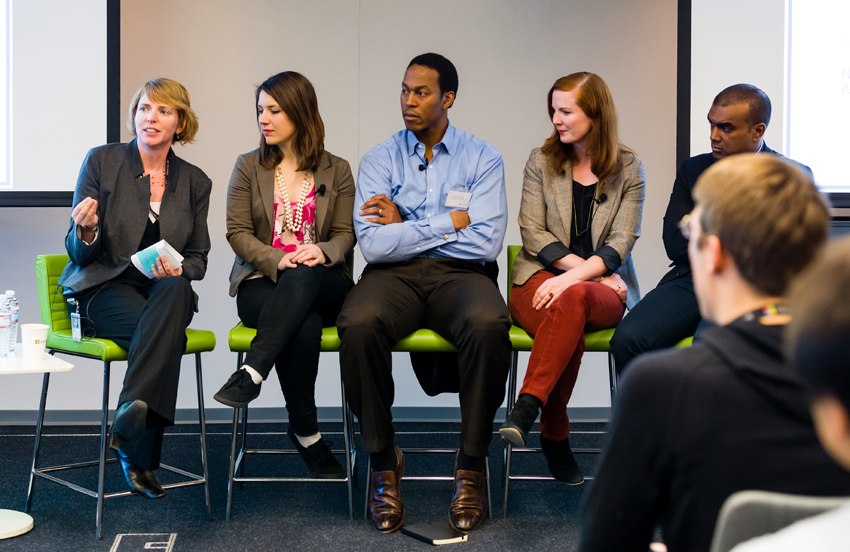When we announced the Microsoft Innovation & Policy Center New England (MIPC-NE) back in October, we set out to “bring together the region’s key stakeholders from the technology, broader business, academic and government communities to respond to important issues that are byproducts or unintended consequences of technological advancements. But perhaps more importantly, we [hoped] to use the Center to anticipate the needs of New England citizens and governments as this next wave of innovation transitions from research to reality.”
The team had a vision of the MIPC-NE when we started the forum, but only in the abstract. For me, it was incredibly gratifying to see that vision we set out in October truly realized in Thursday night’s “Conversation on Civic Technology,” with panelists Kate Crawford (Principal Researcher, Microsoft Research; Visiting Professor, MIT Media Lab), Nicole Fichera (General Manager, District Hall), Nigel Jacob (Co-founder, New Urban Mechanics), Travis McCready (Vice President for Programs, The Boston Foundation), and myself.
The large and remarkably diverse audience pulled from startups, academia, local and state government, non-profits and foundations, civic hackers, community and technology associations, and many, many interested citizens. The civic challenges they brought to the room were equally diverse. That speaks to the point that our talented and passionate panel made: the center of gravity of civic technology isn’t “technology;” but rather, the “civic”—relating to a city, a citizen or citizenship. “Technology” could cover any number of modes by which participants engage with each other in a civic fashion, including new and experimental approaches to fostering dialog, transparency and information sharing.
So could we think of civic technology as community organizing for the 21st century? Perhaps—but I think that oversimplifies what we were all grappling with in the room Thursday night: that technology, however we define it, is just one tool for a 21st century society to use to organize and govern itself for the benefit of all. The age-old concerns of power and equality remain, and it will require hard work, as well as the creative use of the modern tools at our disposal, to address those issues.
The group came up with more questions than definitive answers, but we came together as a collective. The energy in the room until late into the evening showed that there’s a thirst to convene in order to creatively address and solve societal challenges.
We at the MIPC-NE and the Venture Café Foundation look forward to continuing this dialog on civic technology in person at our “Conversations” series (watch this space for future events!), on Twitter at #CivicTechBOS, by e-mail, or in some other fashion yet to be determined. Let’s keep the momentum going!
ICYMI: Browse the full #civictechbos photo album on our Facebook.

